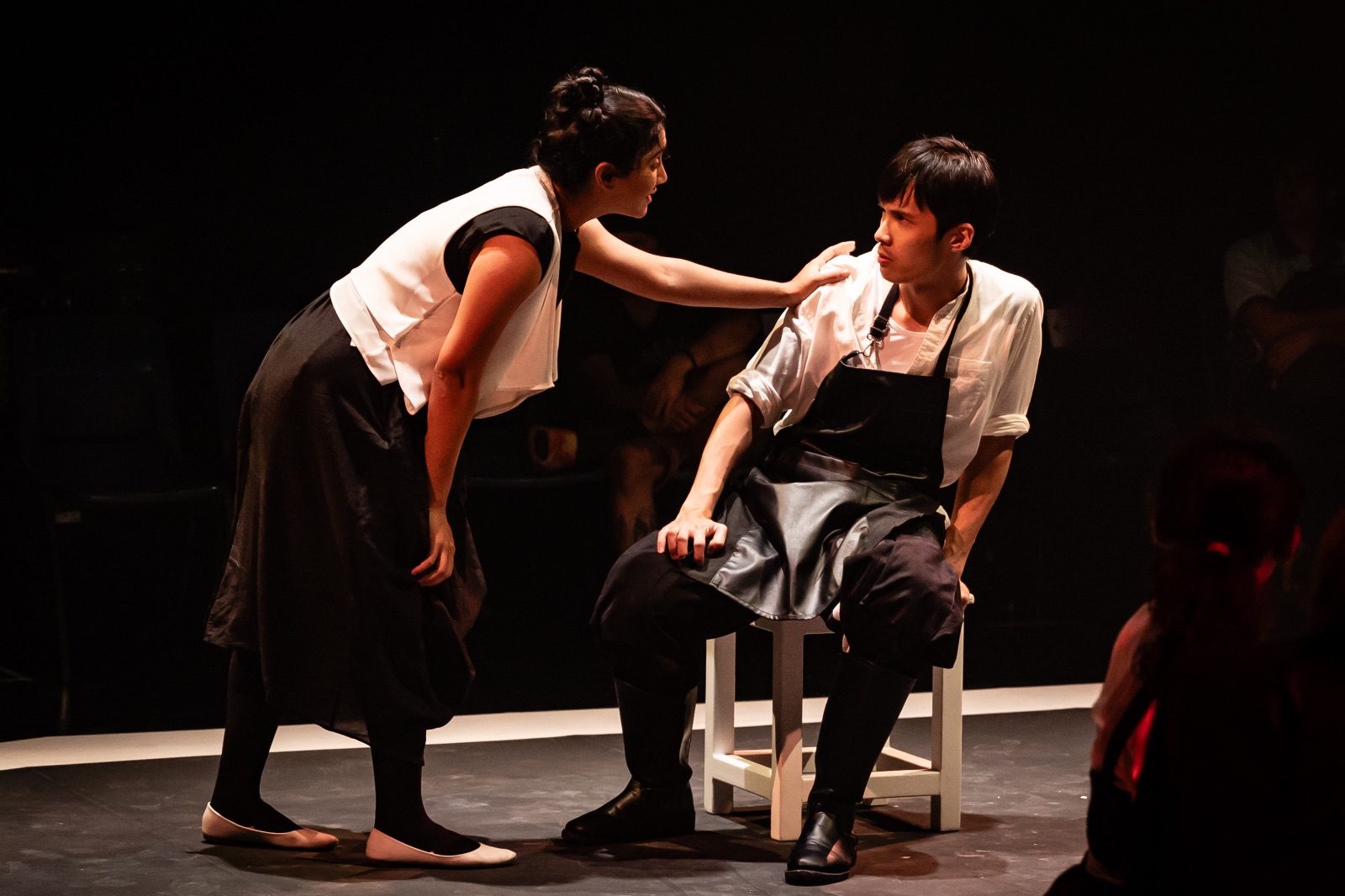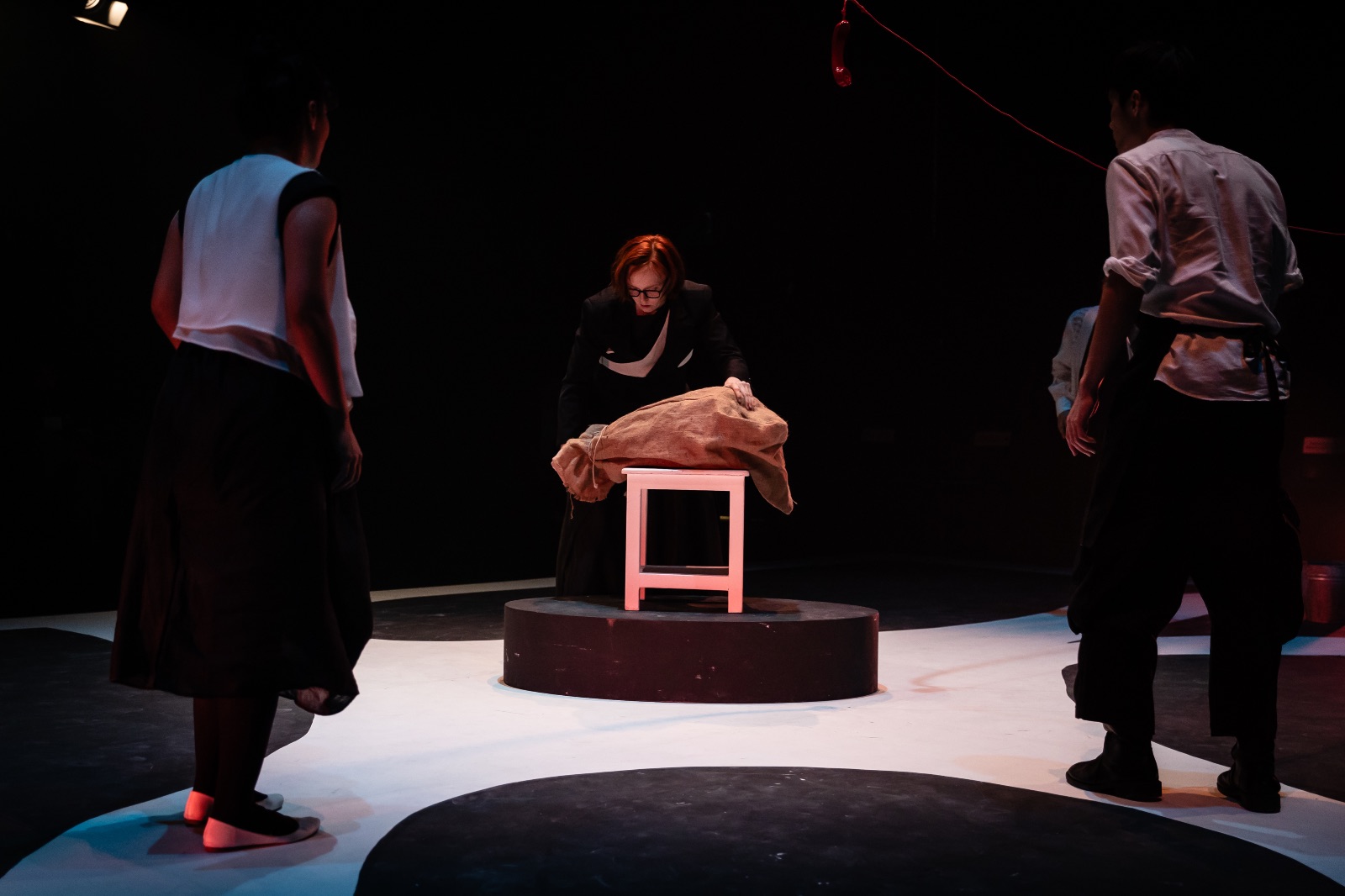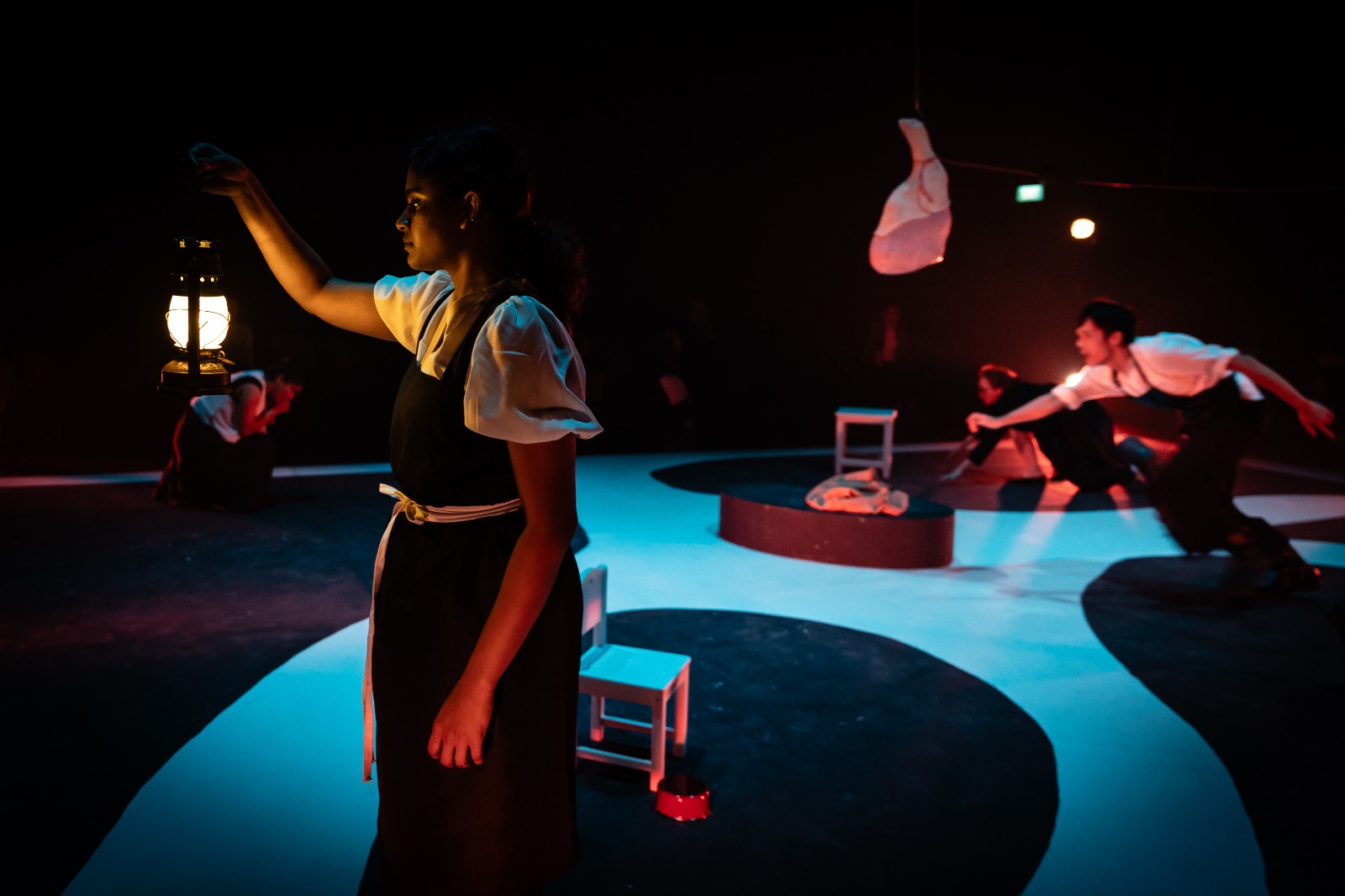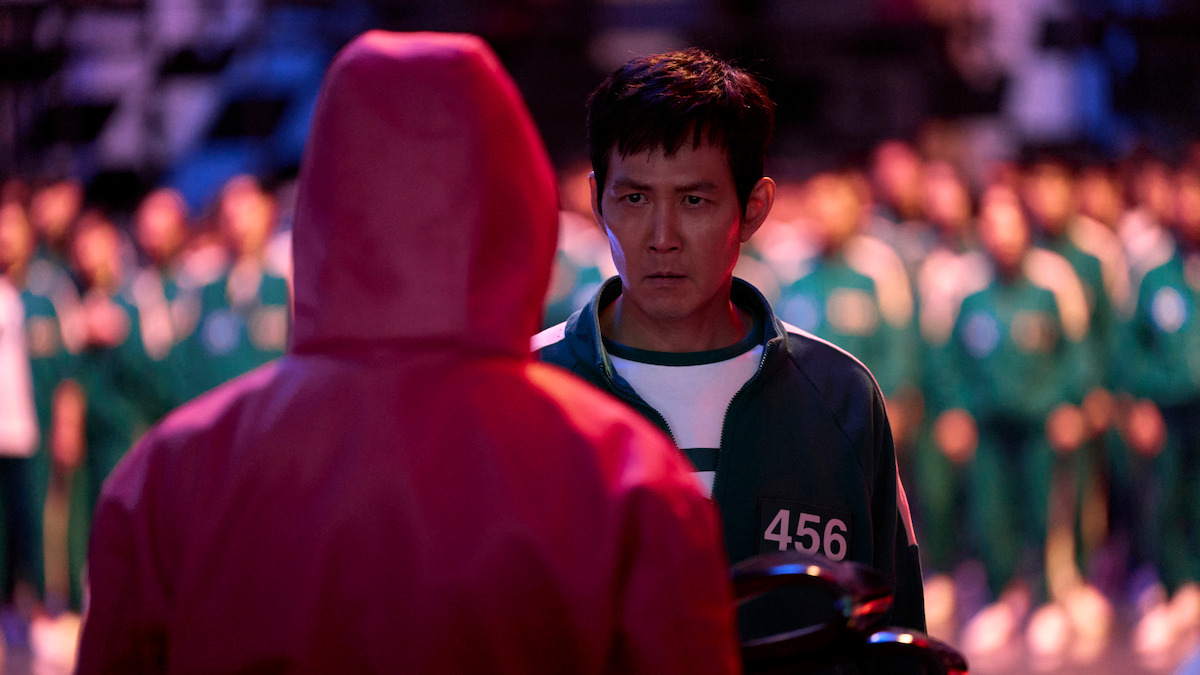
Between August and September 2023, the graduating class of the Intercultural Theatre Institute (ITI) presented a new original work at Drama Centre Black Box: The Chair, directed by theatre veteran Li Xie and performed by an international ensemble.
*Spoiler alert: The following review reveals details of the play. Do not read on if you do not want to know the whole story.
The Chair sets out with a provocative premise: In a small, unnamed town that claims to be rather sleepy and uneventful, James is found to have murdered a few children, drowning them in the lake. While this already sets a dark tone for the play, what raises the hair on our arms is how things unfold after James is apprehended.
The reactions of the various families range widely, with the parents processing grief, anger and disbelief all at once. One of the mothers (played by Swathilakshmi Perumal), the wife of the town’s butcher, is particularly set on revenge; the production unveils her violent streak even before she discovers her son’s death, as the show opens with her devising a plan to kill the neighbour’s cat.

This mother’s desperate urge to avenge her family isn’t surprising, then, in the face of grief and the violence simmering just under the surface. But it turns out that her vengeful fantasies aren’t at all ludicrous in this town – there is, in fact, a law that states that this is how a murder must be set right: a life for a life. As the mayor (Mika Oskarson Kindstrand) announces impassively, it is down to the children’s grieving parents to murder James in return.
Grief and revenge
What follows is a heated discussion between the families to establish who should be the one to carry out this revenge. Ultimately, the butcher (Choy Chee Yew) and the town’s counsellor (Cheng Kam Yiu (Yolanda)), who lost a relative as well, are chosen for the job. In between arguments and moral back-and-forth, the mayor is heard conversing with the press over the phone, interjecting to remind the parents that the town’s reputation is at stake if they do not avenge their children.

Preparations are then set in motion for a particularly haunting segment of the play: the practice. After all, the parents cannot go in and carry out this execution with no experience – they have to first undertake something akin to a rehearsal, using a pig, a noose and, you guessed it, a chair.
This practice run is grotesque and deeply chilling – the actors are absolutely marvellous on stage as they attempt to hang the imaginary animal, wrestling the pig’s empty bag with such precise movement that it appears to be fighting back and leaves the audience wide-eyed. Even though the set is rather bare-bones – a dark stage, strobe lights and minimal props – we feel absorbed and almost trapped in this dark, claustrophobic world they have created.
Just before the execution, we follow James’ mother (Abinaya Jothi) as she visits him in prison. Through her own words (for we never hear James speak nor see his face) we find out that he is laughing and mocking her care for him. James is represented by a small chair, challenging the actors to speak and react to it like they are interacting with a real person, helping us appreciate his presence despite the absence of a body.
It seems until this point that James is older than the children he drowned, likely a teenager from his actions, but his conversation with his mother codes him as a small child himself. This is made even more apparent by the minute size of the chair representing him, as well as the moment when the other parents come to pick him up and carry him to the hanging site.
When we hear him for the first time, it’s not the voice of a teenage boy, not even that of a toddler, but instead the cry of a baby. This implies the possibility that the play is not just questioning the nature of justice and the death penalty, but the morality of avenging a murder carried out by a child.
Unlearning justice
Despite the more physically violent moments in the production, it is the mayor reassuring the journalists at the other end of the line that truly struck us. Not just because Kindstrand is a fabulous performer, but also because it is a poignant reminder of what humans are capable of when we are conditioned to think a certain way, and when we have internalised a warped view of care and morality. If our society told us that this absurd version of the death penalty constitutes justice, where would we even start with unlearning?
The ending of the play is left open, the actors deserting the stage and the space occupied by an ominous stack of chairs that was never kicked over as intended. The dehumanisation of James’ character is impossible to ignore at this juncture. Without the performers to interact with him, James is left in a voiceless limbo, the audience unsure whether he was spared or if they might come back for him after all.
It’s intriguing to consider how The Chair could spark a conversation in a place like Singapore, where the death penalty is very much in place, and prisoners sentenced to death are similarly stripped of their agency. Would proponents of it nod their heads in agreement with the mayor and silently encourage the butcher to kick the chair? Would they be appalled at how emotional and personal the whole affair is and prefer a more clinical and bureaucratic execution? Or would they stop to think about the implications of ending a life, no matter the circumstances?
With The Chair, the graduating class of ITI has once again crafted a thought-provoking and brilliantly executed piece that’s not easily forgotten.
For more shows by ITI, visit iti.edu.sg.
Photos: Bernie Ng





